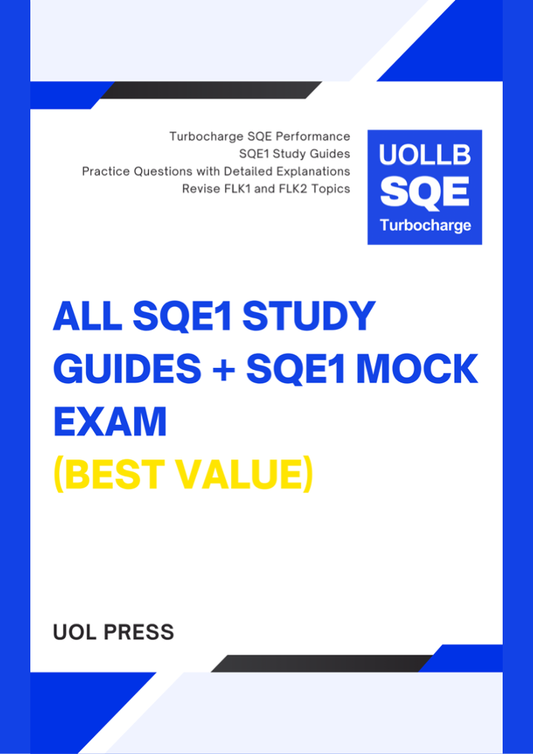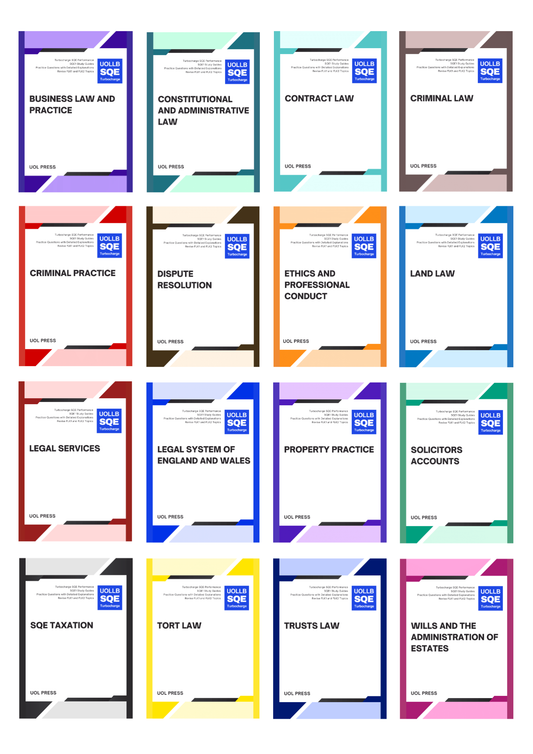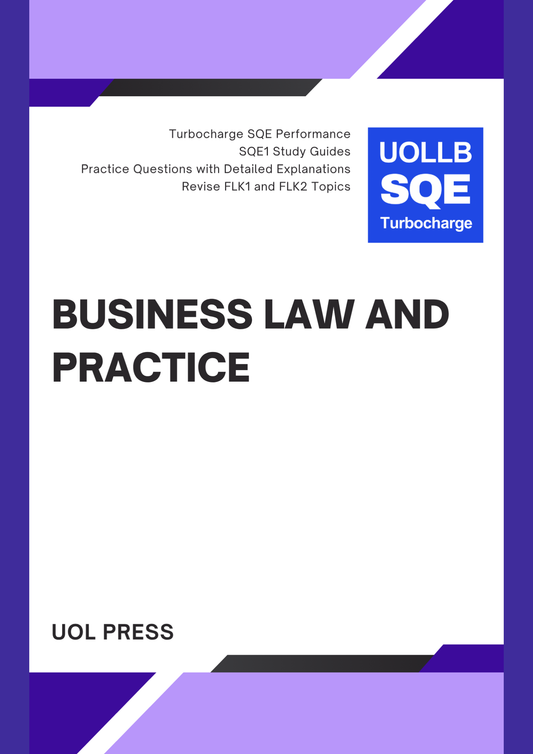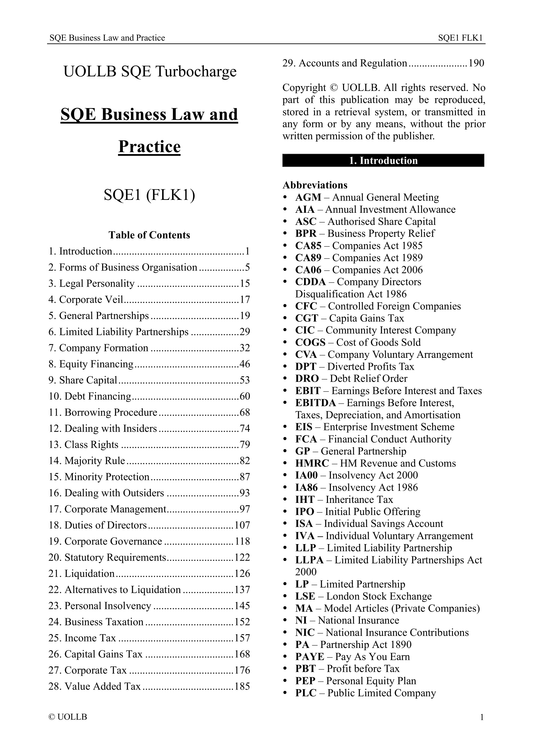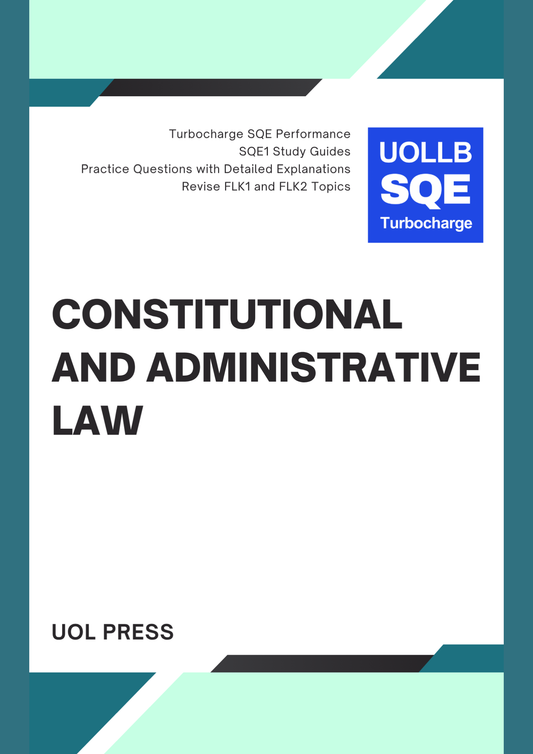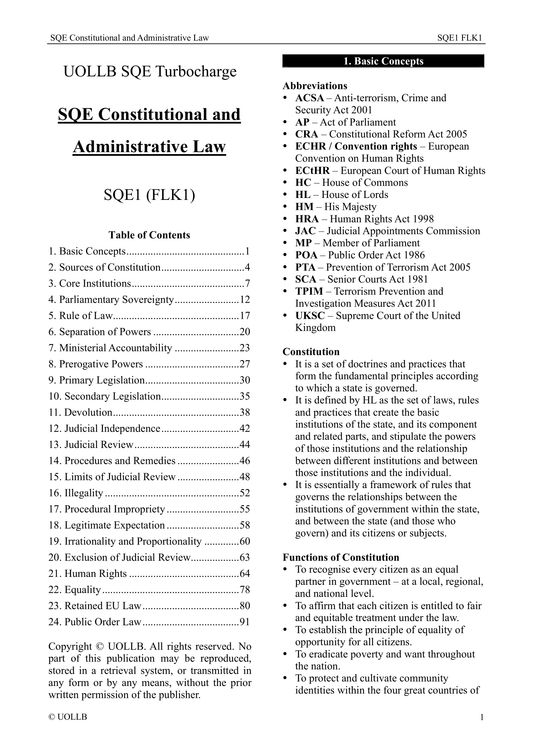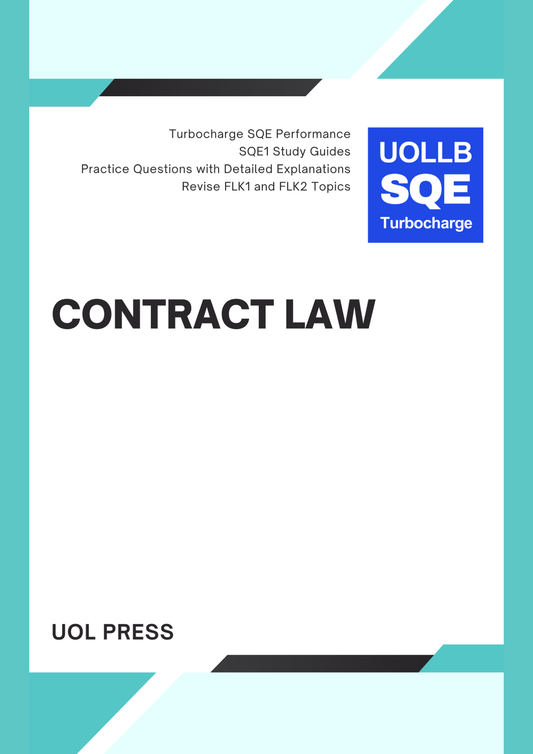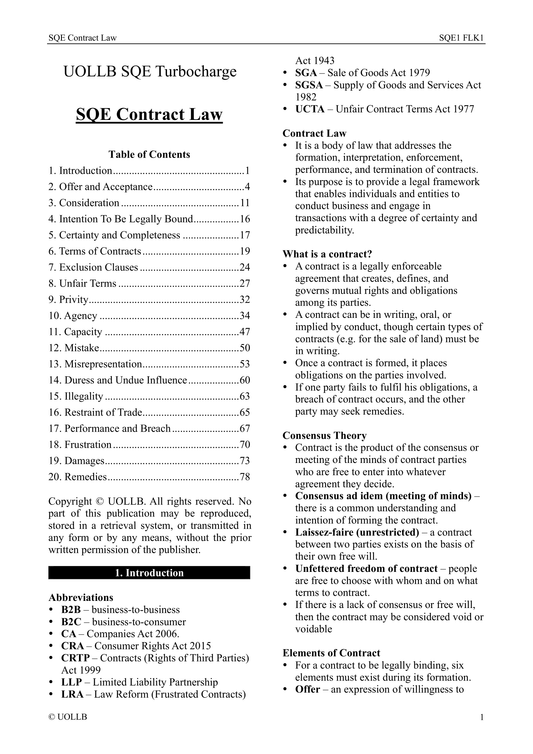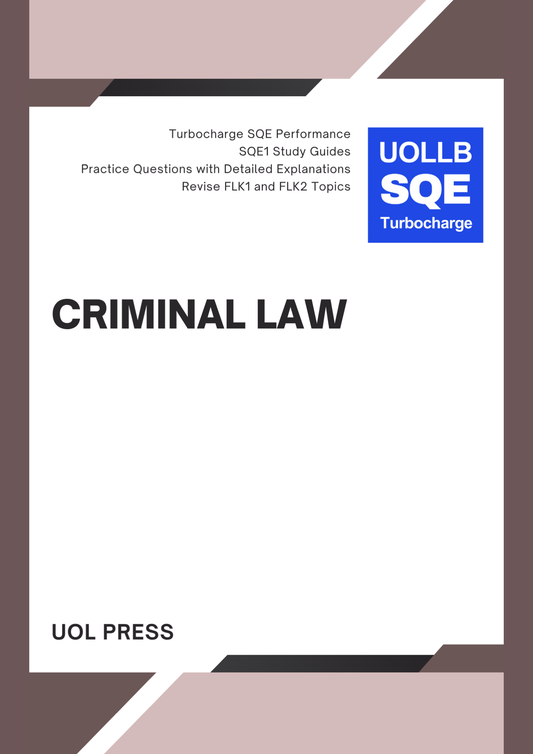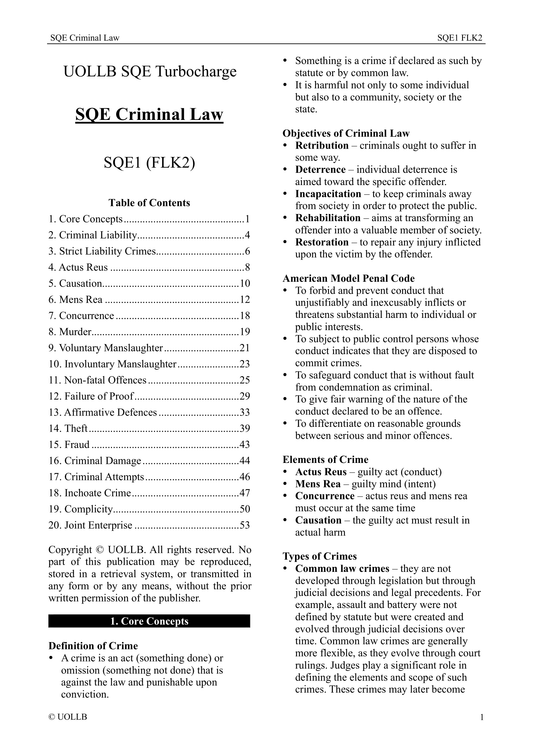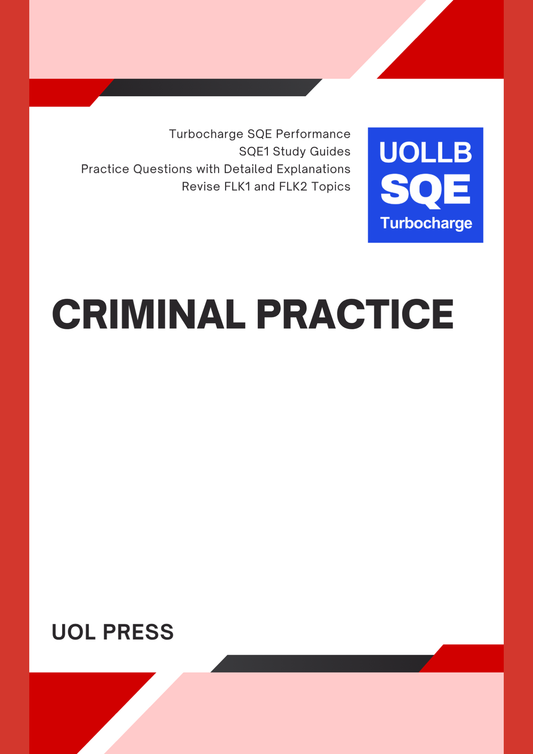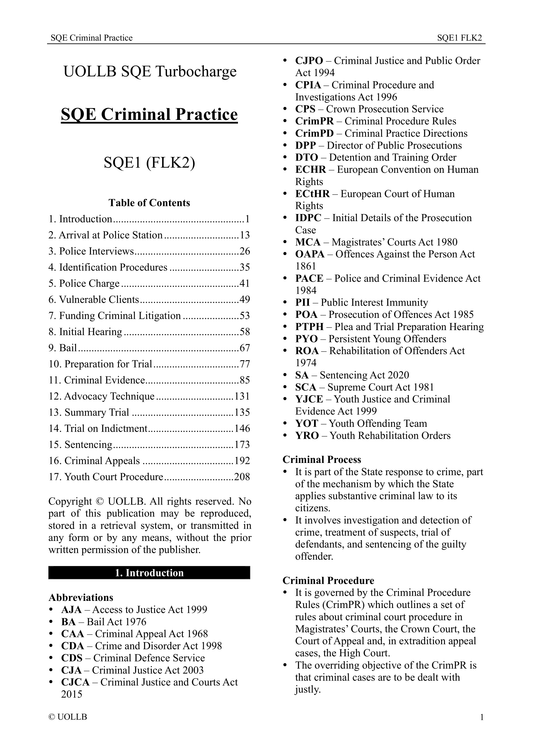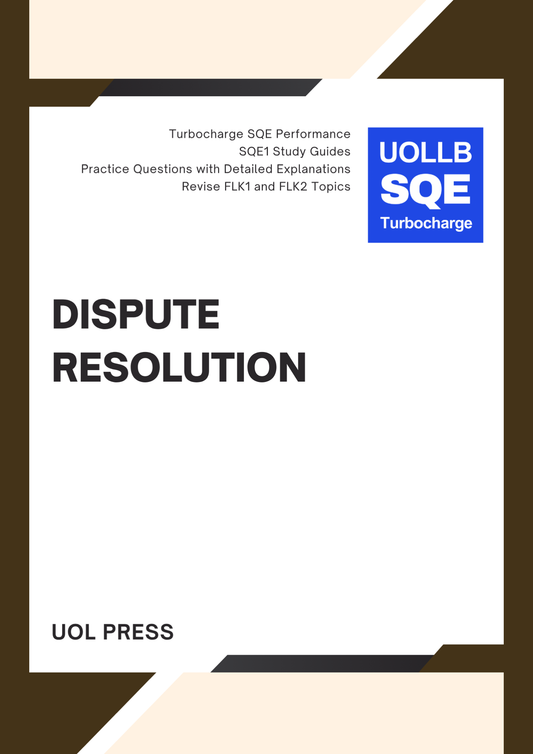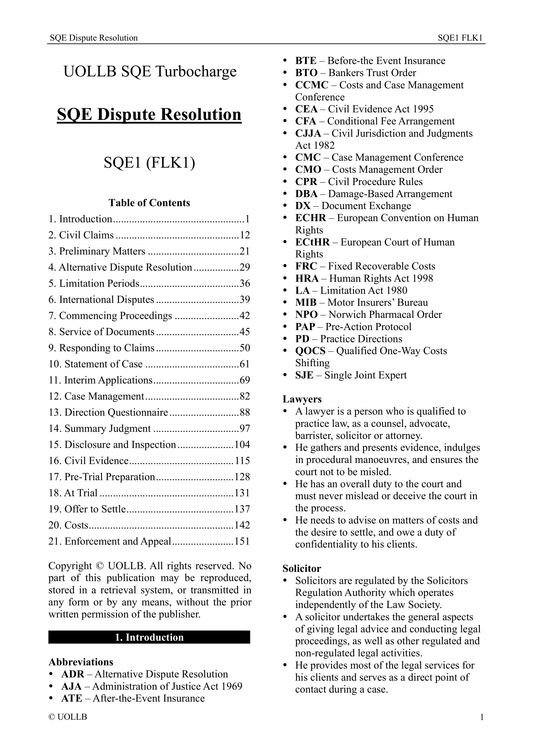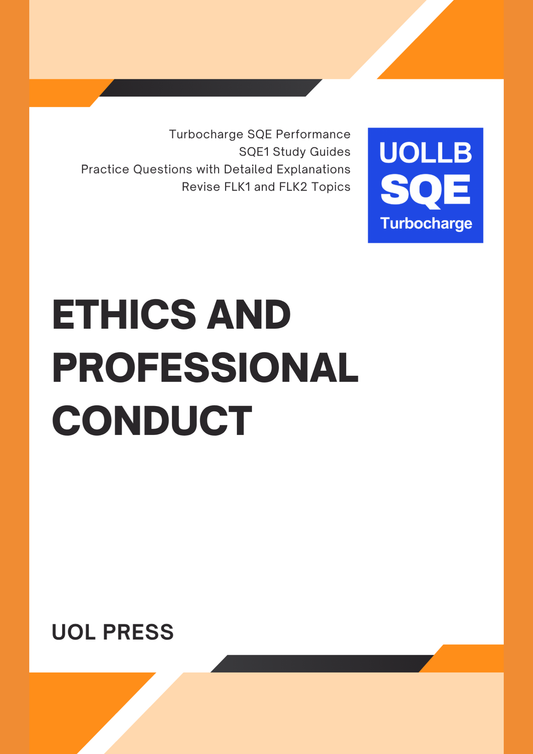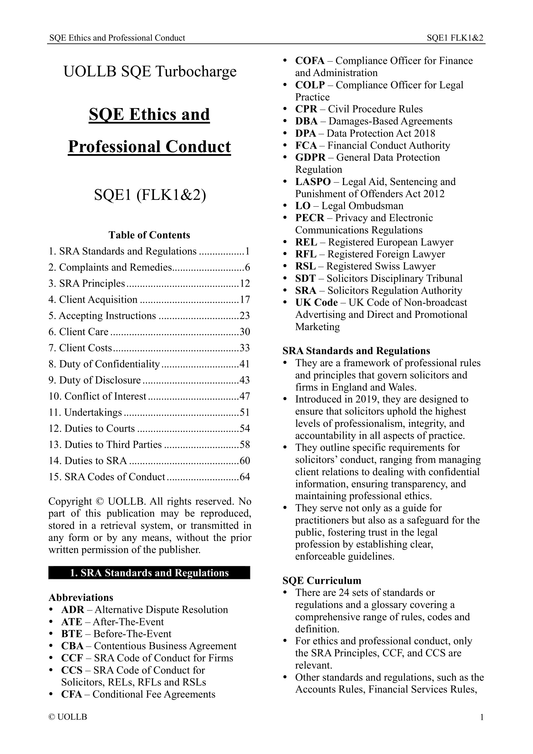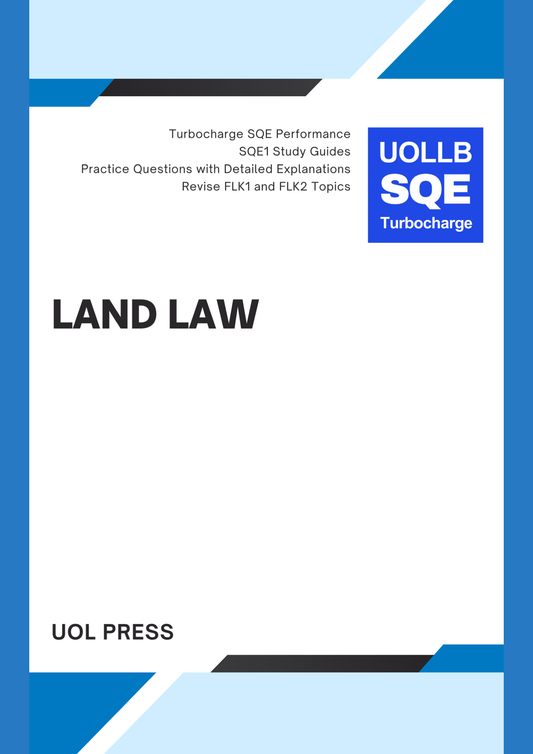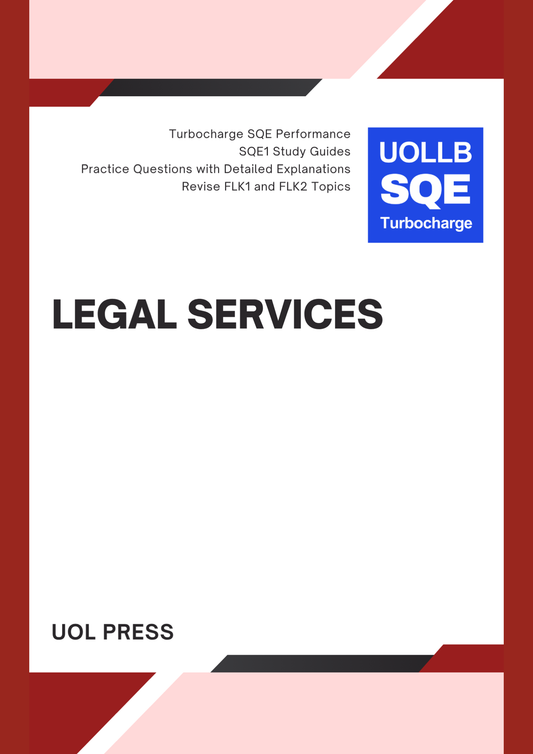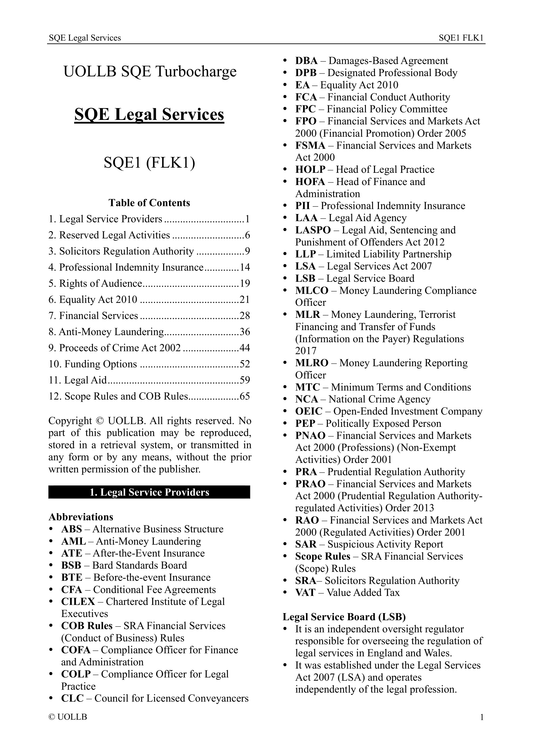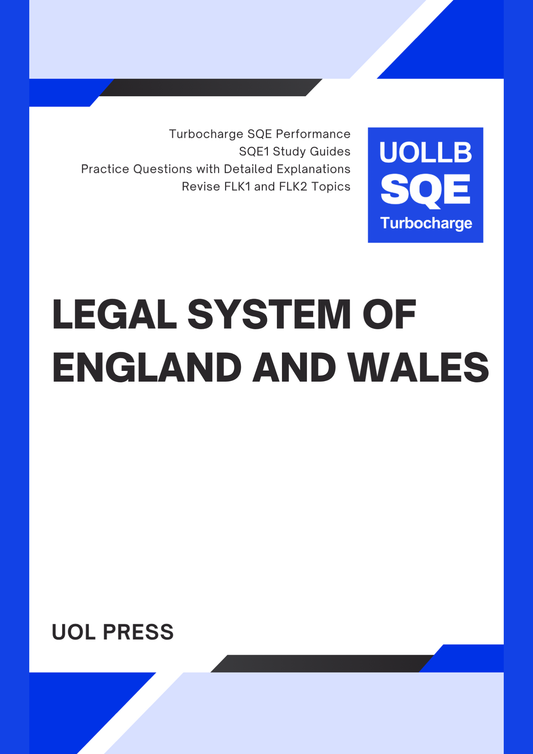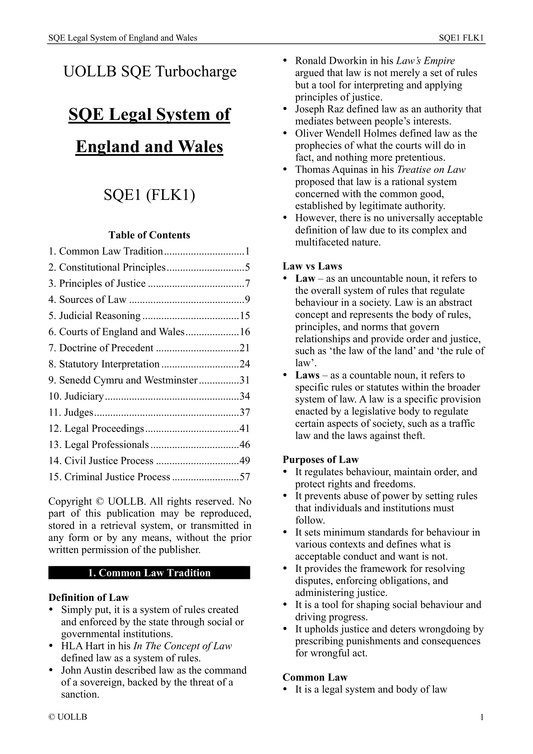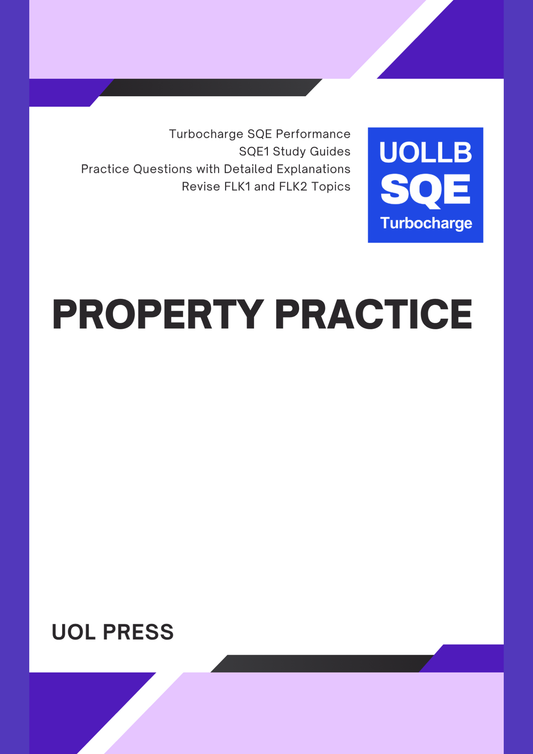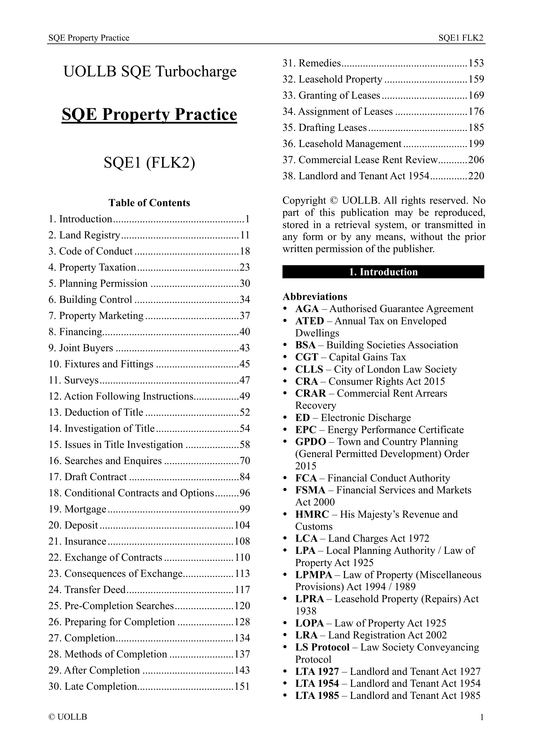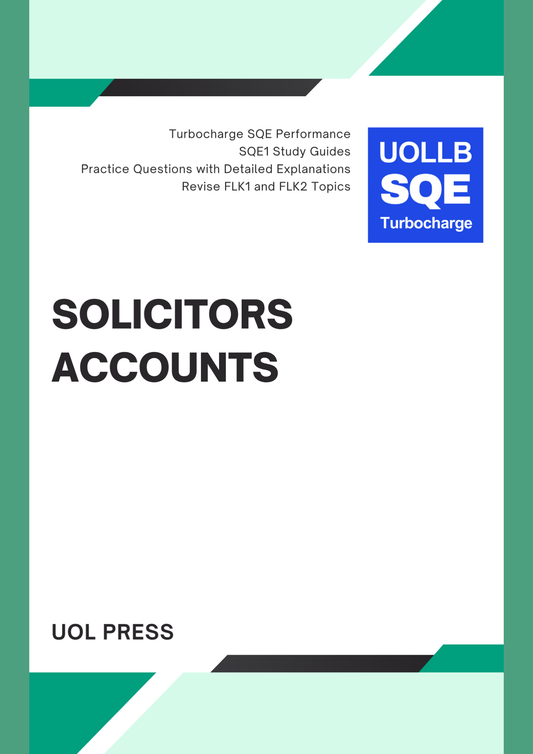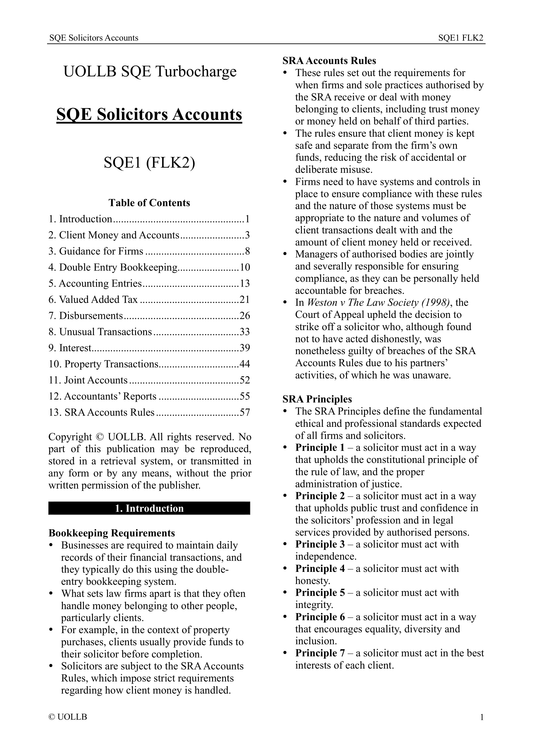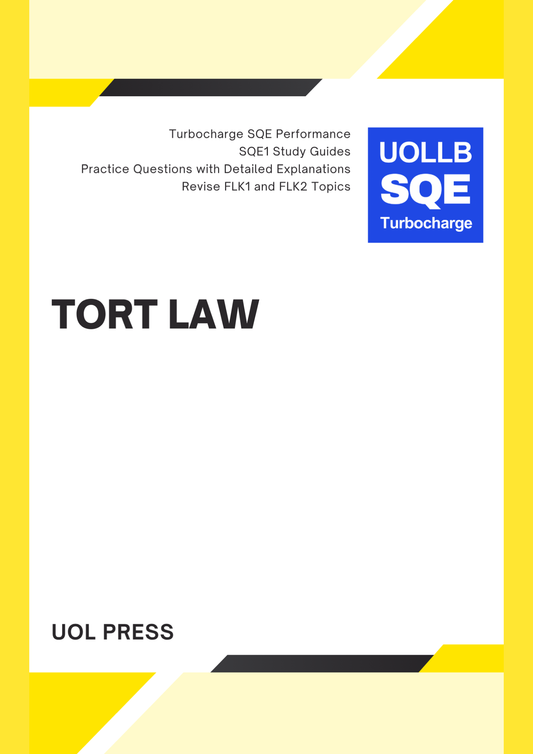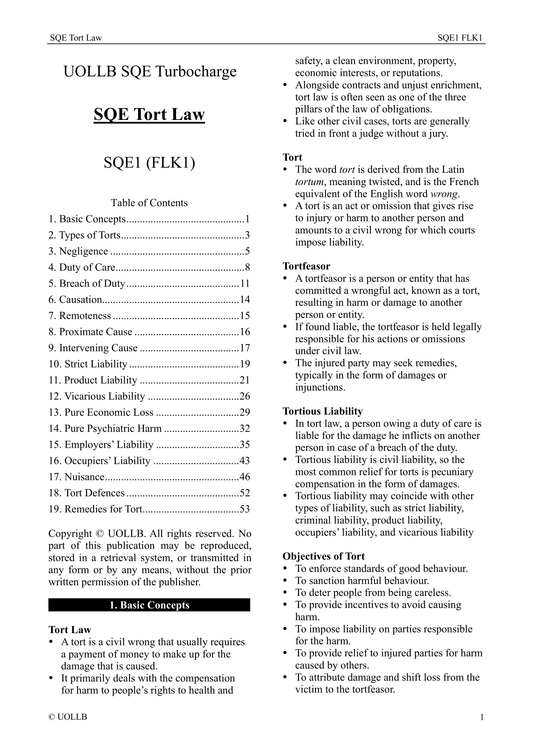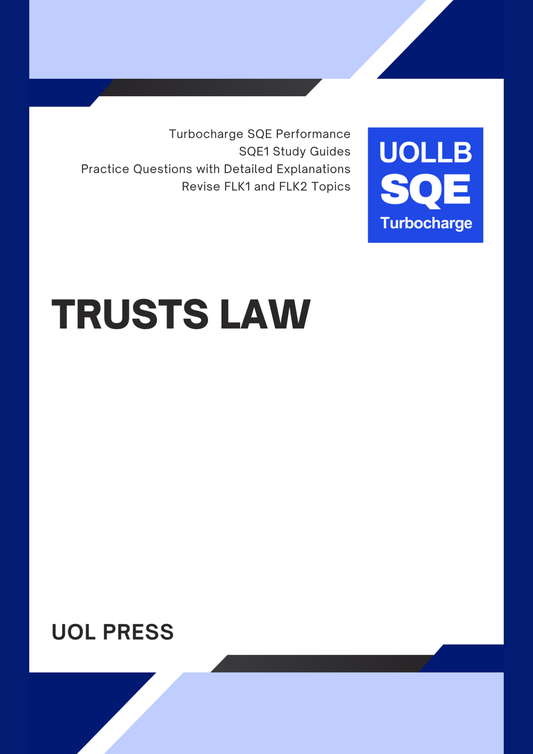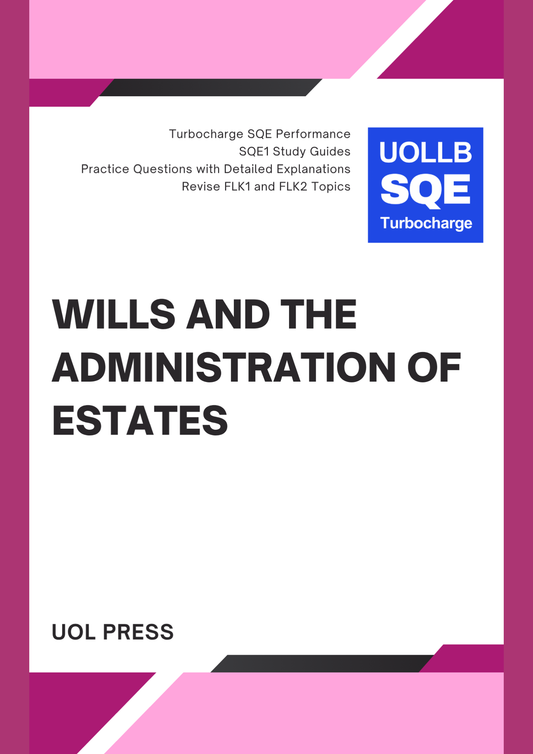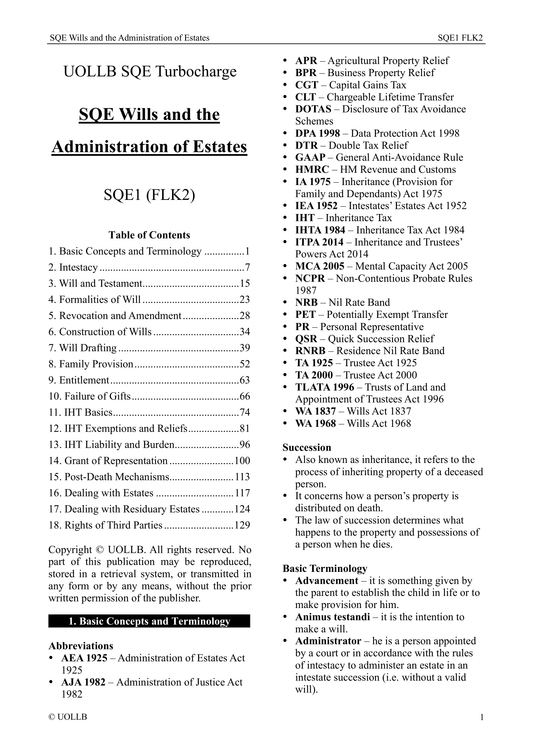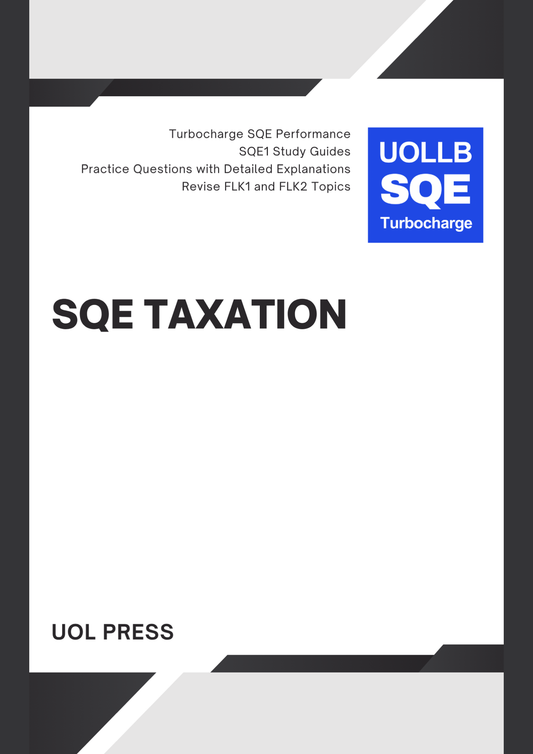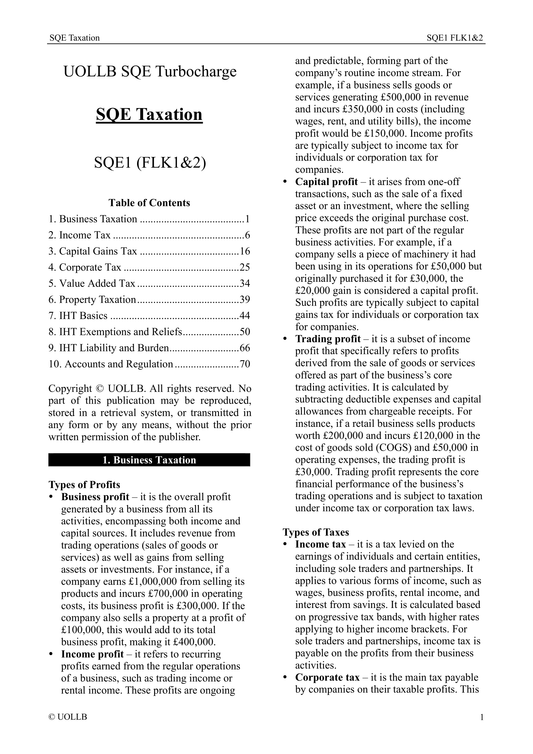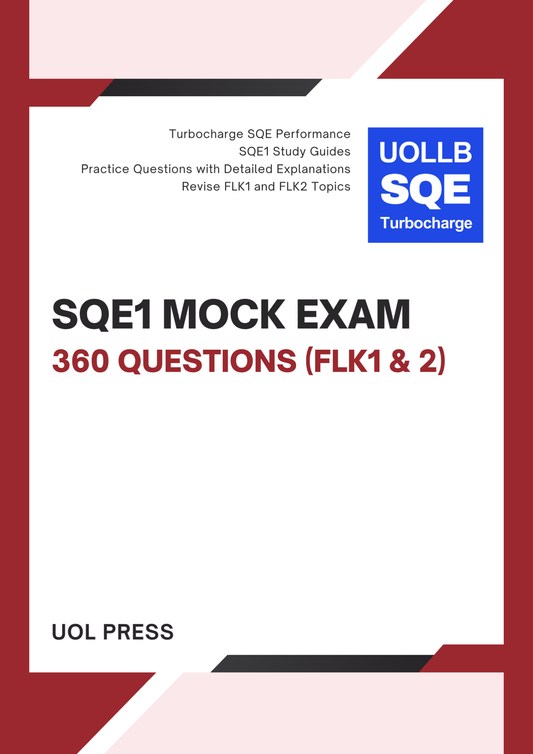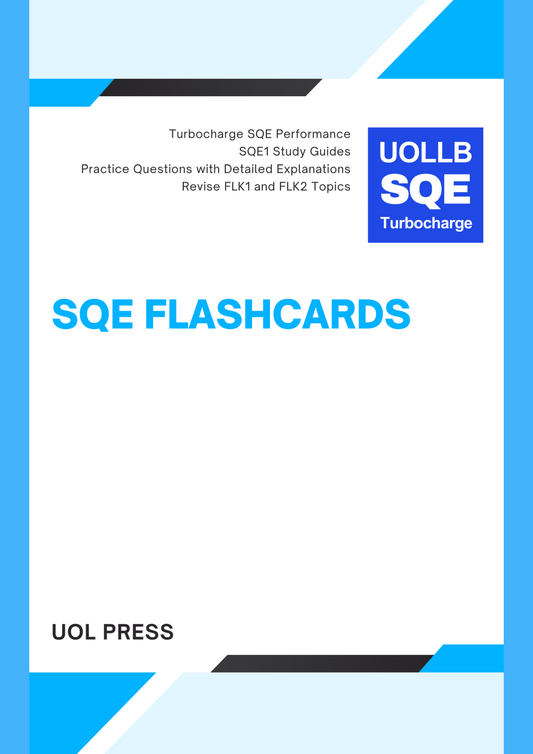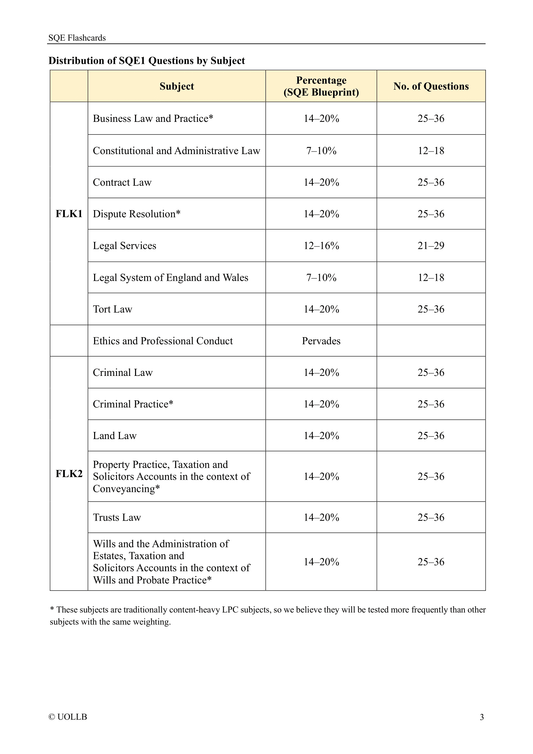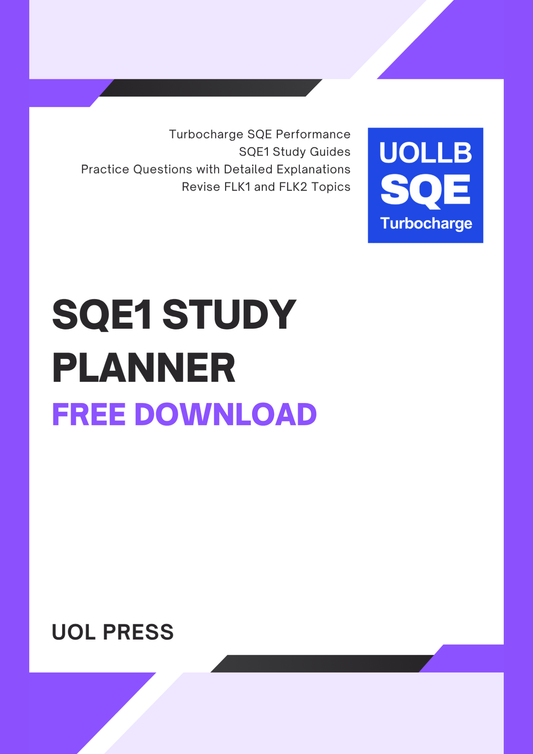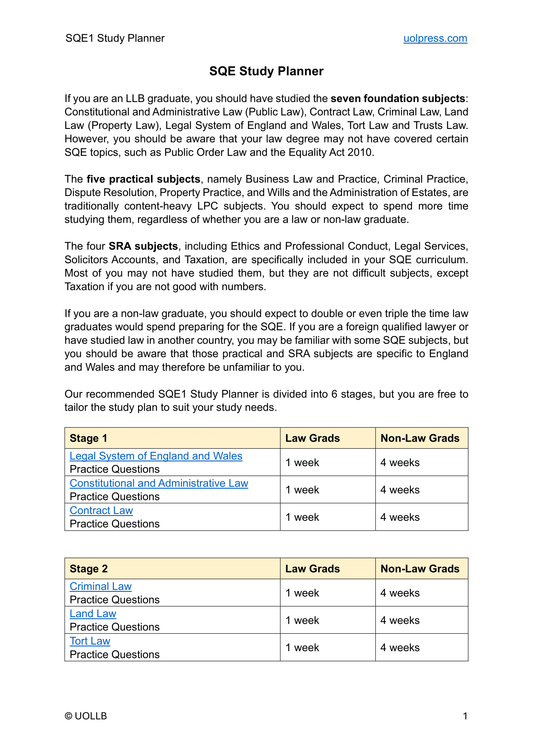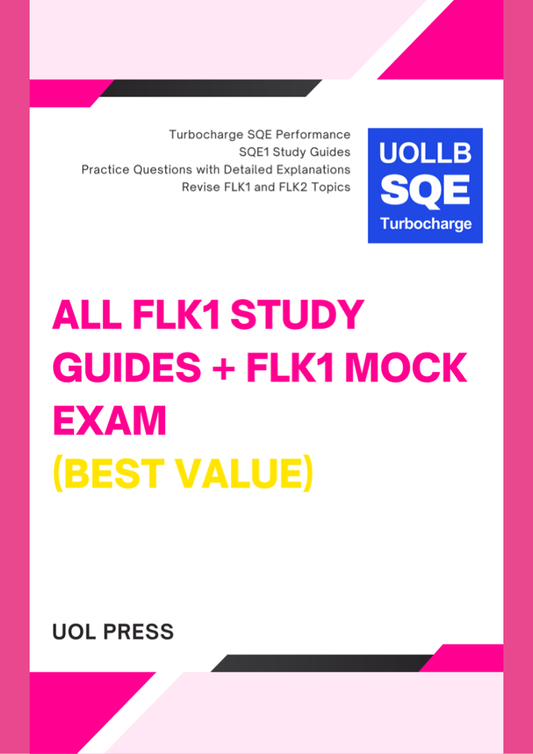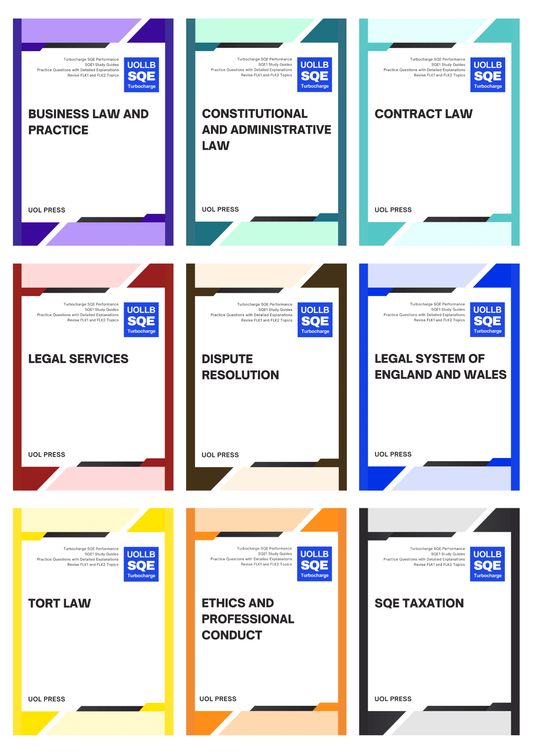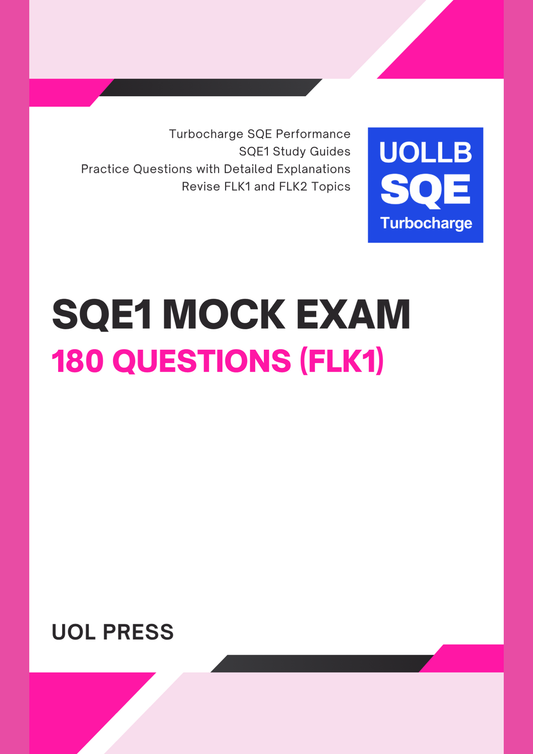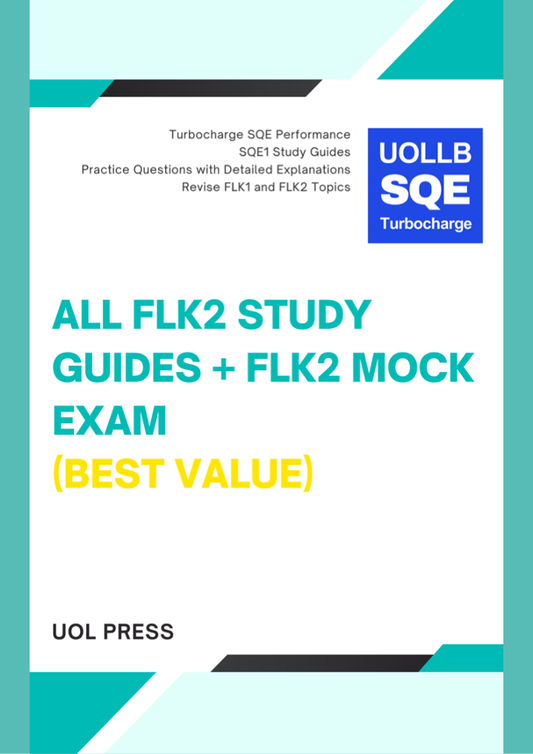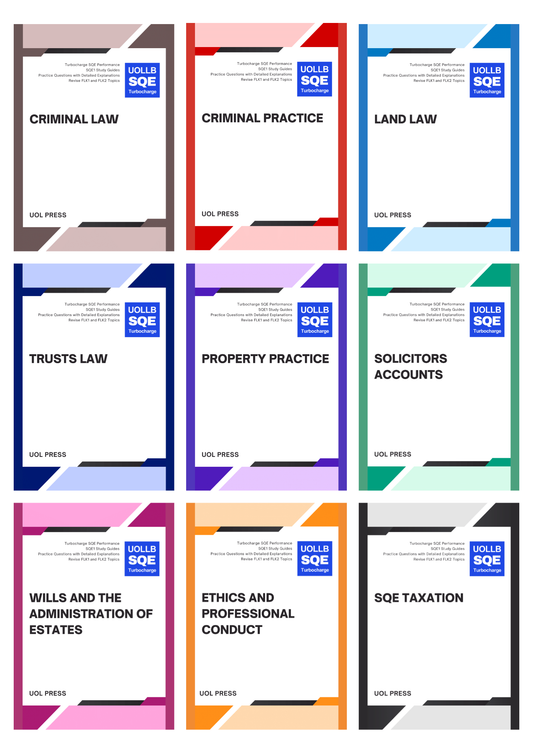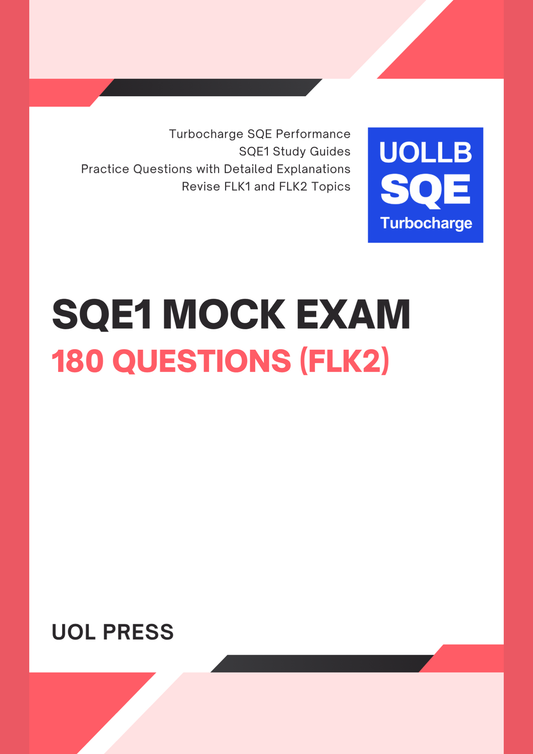Advantages and Disadvantages of SQE
Share
The introduction of the Solicitors Qualifying Examination (SQE) has transformed the pathway to becoming a solicitor in England and Wales. Launched in 2021, the SQE replaced the traditional Legal Practice Course (LPC) and training contract route, offering a unified assessment process. While the SQE presents many advantages, it also comes with challenges that prospective solicitors must carefully consider.
Advantages of the SQE
One of the most significant advantages of the SQE is its inclusivity and accessibility. Unlike the LPC, which required candidates to have a law degree or complete a Graduate Diploma in Law (GDL), the SQE is open to anyone with a recognised degree in any subject. This flexibility enables non-law graduates and career changers to enter the legal profession. The SQE assessments are offered at Pearson VUE test centres worldwide, allowing international candidates and foreign lawyers to qualify without the need to relocate to England or Wales.
Another notable benefit is the cost-effectiveness of the SQE. The traditional LPC route is often prohibitively expensive, unlike the SQE route which is much less costly. The ability to self-study, rather than enrolling in expensive preparation courses, can further reduce the financial burden. This makes the SQE an attractive option for those who want to pursue a legal career without incurring significant debt.
The SQE also streamlines the qualification process. By consolidating what was previously a multi-step process into a single framework, the SQE simplifies the journey to becoming a solicitor. It replaces the GDL, LPC, and training contract with two standardised assessments, namely SQE1 and SQE2, paired with Qualifying Work Experience (QWE). This allows you to gain practical experience in a variety of legal settings rather than being limited to a formal training contract, offering greater flexibility in how you complete your qualification requirements.
Consistency is another key advantage. The SQE introduces a uniform national assessment regulated by the Solicitors Regulation Authority (SRA). This ensures that all candidates are assessed against the same standard, creating a level playing field. Under the LPC system, the quality and content of the course could vary between providers, leading to potential disparities in candidate preparedness.
Disadvantages of the SQE
Despite its benefits, the SQE comes with notable challenges. One of the most significant drawbacks is the intense exam format. SQE1 requires candidates to demonstrate functioning legal knowledge across a broad range of topics in a closed-book, single best answer multiple-choice format. This demands extensive memorisation and a strong ability to apply knowledge under pressure. SQE2, which assesses practical legal skills, may also be daunting for candidates who have limited prior experience or insufficient preparation.
The generalist nature of the SQE is another potential downside. Unlike the LPC, which allowed candidates to choose elective modules tailored to their career aspirations, the SQE focuses solely on core legal knowledge and skills. This lack of specialisation may leave candidates feeling underprepared for specific areas of practice they wish to pursue.
The SQE’s newness can also pose challenges. As it is still a relatively recent qualification route, it may not yet enjoy the same level of recognition or acceptance as the LPC among some employers. While this perception is expected to evolve over time, it could initially place candidates at a disadvantage compared to those who qualified under the traditional route.
Additionally, although the SQE eliminates the requirement for a formal training contract, the increased competition for Qualifying Work Experience (QWE) can be challenging. You must proactively seek placements in legal settings to complete their QWE, and the lack of structured opportunities may make it difficult for some to gain meaningful experience.
Financially, the SQE seems more affordable, but it still requires a significant upfront investment. You must cover the costs of registration, the SQE1 and SQE2 exams, and any preparation courses or materials you choose to use. Unlike the LPC, where integrated funding options were often available, the SQE currently lacks a similar level of financial support.
If you are considering the SQE, it is crucial to weigh the advantages against the disadvantages in relation to your personal circumstances and career goals. Although the SQE simplifies the qualification process and makes it more accessible, succeeding under this framework requires discipline, adaptability, and strategic planning. As the SQE continues to establish itself, its advantages may outweigh its drawbacks, but understanding both sides is essential for making an informed decision about pursuing this pathway.
Advantages of the SQE
One of the most significant advantages of the SQE is its inclusivity and accessibility. Unlike the LPC, which required candidates to have a law degree or complete a Graduate Diploma in Law (GDL), the SQE is open to anyone with a recognised degree in any subject. This flexibility enables non-law graduates and career changers to enter the legal profession. The SQE assessments are offered at Pearson VUE test centres worldwide, allowing international candidates and foreign lawyers to qualify without the need to relocate to England or Wales.
Another notable benefit is the cost-effectiveness of the SQE. The traditional LPC route is often prohibitively expensive, unlike the SQE route which is much less costly. The ability to self-study, rather than enrolling in expensive preparation courses, can further reduce the financial burden. This makes the SQE an attractive option for those who want to pursue a legal career without incurring significant debt.
The SQE also streamlines the qualification process. By consolidating what was previously a multi-step process into a single framework, the SQE simplifies the journey to becoming a solicitor. It replaces the GDL, LPC, and training contract with two standardised assessments, namely SQE1 and SQE2, paired with Qualifying Work Experience (QWE). This allows you to gain practical experience in a variety of legal settings rather than being limited to a formal training contract, offering greater flexibility in how you complete your qualification requirements.
Consistency is another key advantage. The SQE introduces a uniform national assessment regulated by the Solicitors Regulation Authority (SRA). This ensures that all candidates are assessed against the same standard, creating a level playing field. Under the LPC system, the quality and content of the course could vary between providers, leading to potential disparities in candidate preparedness.
Disadvantages of the SQE
Despite its benefits, the SQE comes with notable challenges. One of the most significant drawbacks is the intense exam format. SQE1 requires candidates to demonstrate functioning legal knowledge across a broad range of topics in a closed-book, single best answer multiple-choice format. This demands extensive memorisation and a strong ability to apply knowledge under pressure. SQE2, which assesses practical legal skills, may also be daunting for candidates who have limited prior experience or insufficient preparation.
The generalist nature of the SQE is another potential downside. Unlike the LPC, which allowed candidates to choose elective modules tailored to their career aspirations, the SQE focuses solely on core legal knowledge and skills. This lack of specialisation may leave candidates feeling underprepared for specific areas of practice they wish to pursue.
The SQE’s newness can also pose challenges. As it is still a relatively recent qualification route, it may not yet enjoy the same level of recognition or acceptance as the LPC among some employers. While this perception is expected to evolve over time, it could initially place candidates at a disadvantage compared to those who qualified under the traditional route.
Additionally, although the SQE eliminates the requirement for a formal training contract, the increased competition for Qualifying Work Experience (QWE) can be challenging. You must proactively seek placements in legal settings to complete their QWE, and the lack of structured opportunities may make it difficult for some to gain meaningful experience.
Financially, the SQE seems more affordable, but it still requires a significant upfront investment. You must cover the costs of registration, the SQE1 and SQE2 exams, and any preparation courses or materials you choose to use. Unlike the LPC, where integrated funding options were often available, the SQE currently lacks a similar level of financial support.
If you are considering the SQE, it is crucial to weigh the advantages against the disadvantages in relation to your personal circumstances and career goals. Although the SQE simplifies the qualification process and makes it more accessible, succeeding under this framework requires discipline, adaptability, and strategic planning. As the SQE continues to establish itself, its advantages may outweigh its drawbacks, but understanding both sides is essential for making an informed decision about pursuing this pathway.
